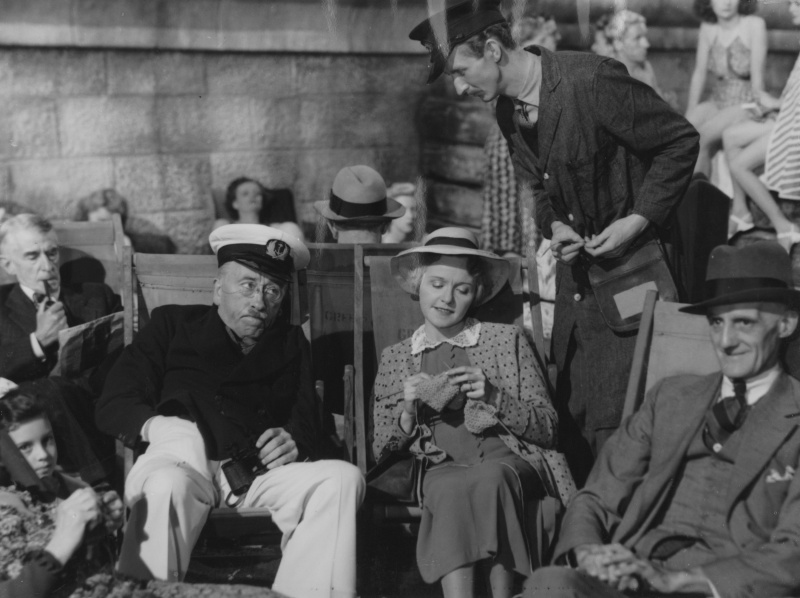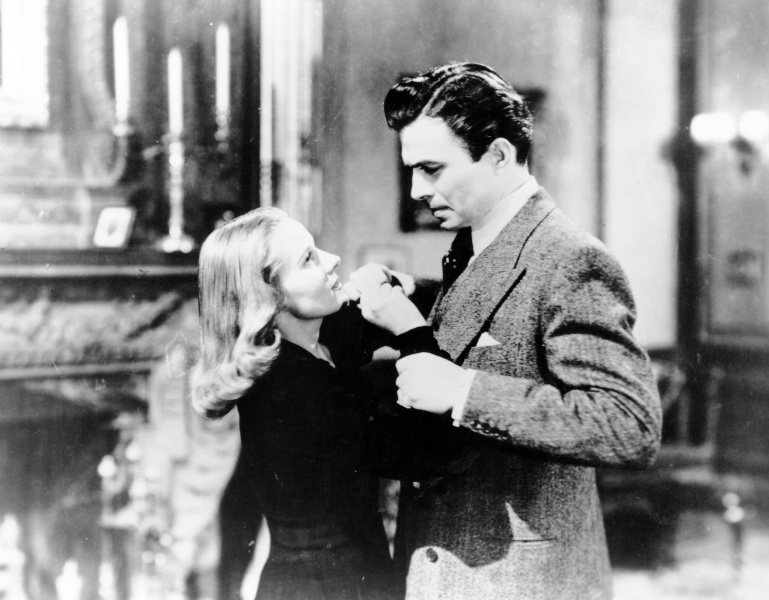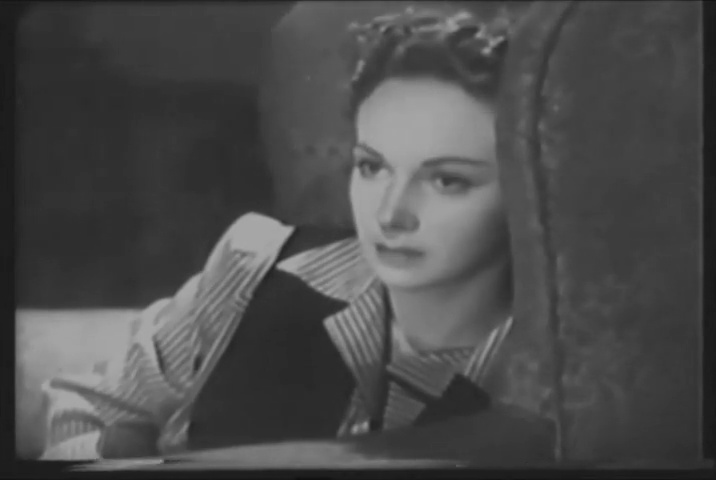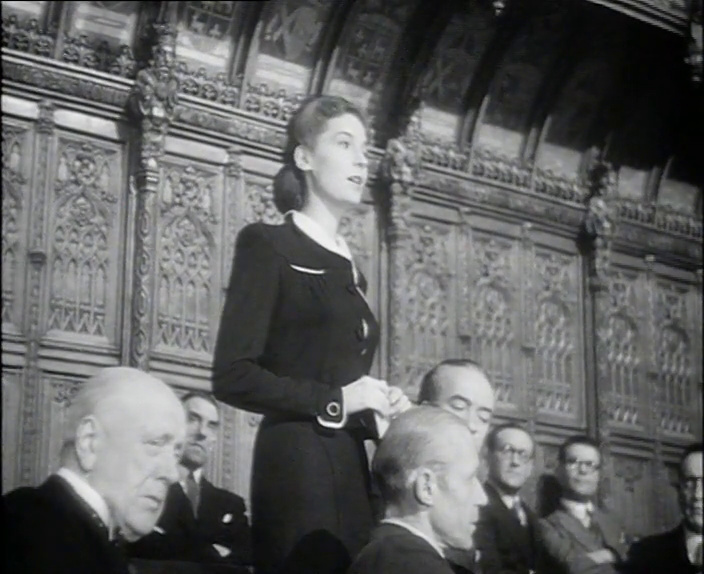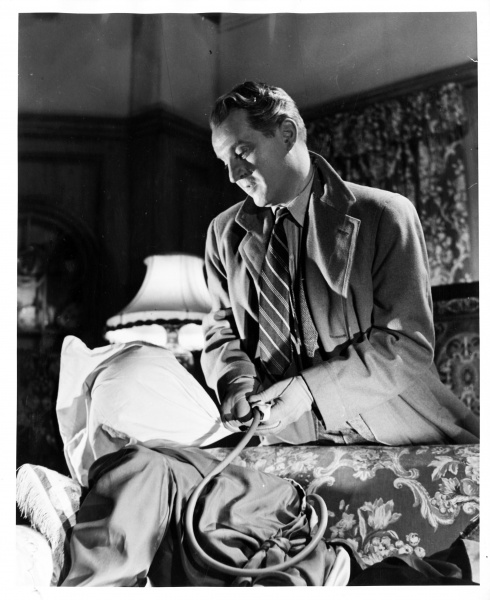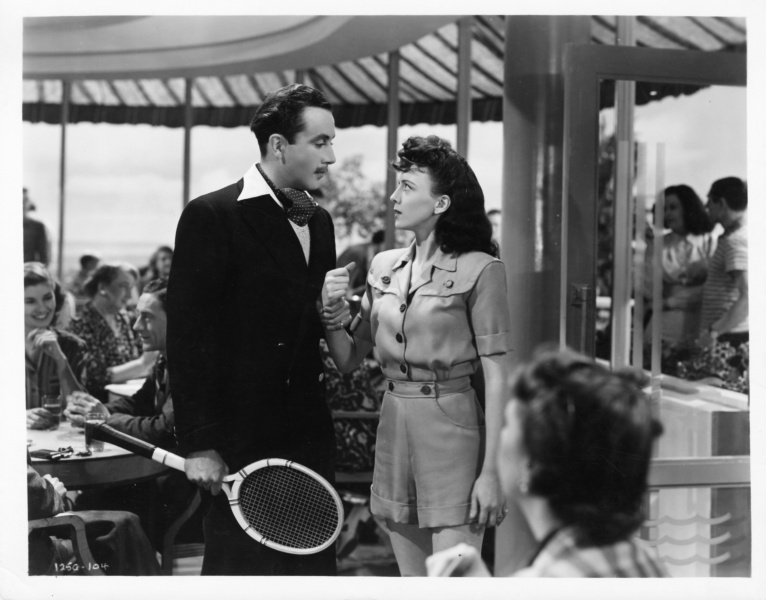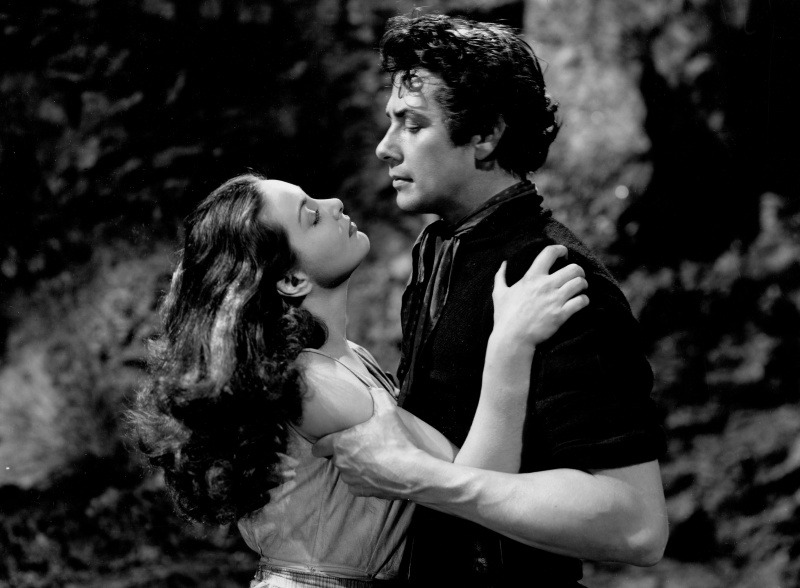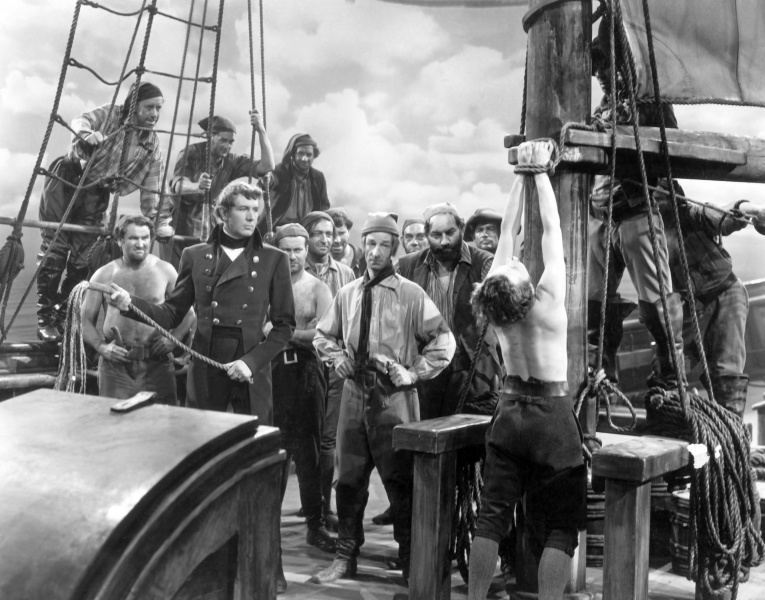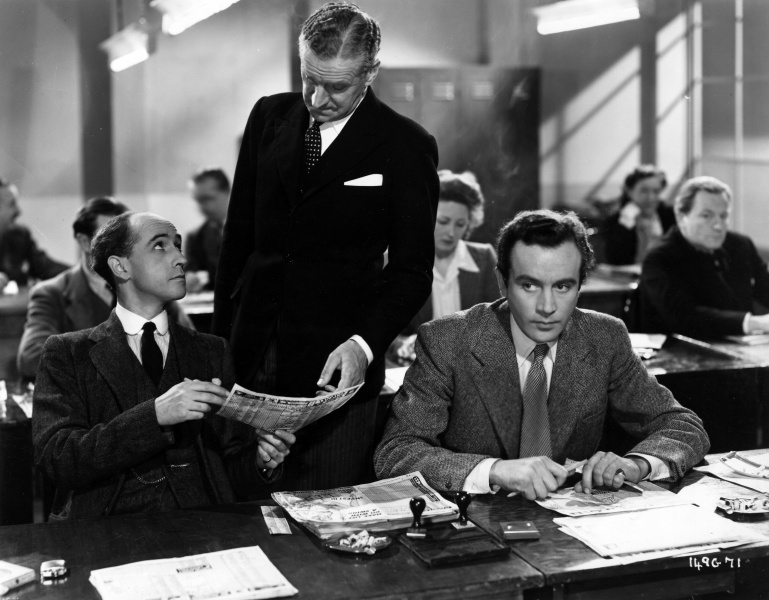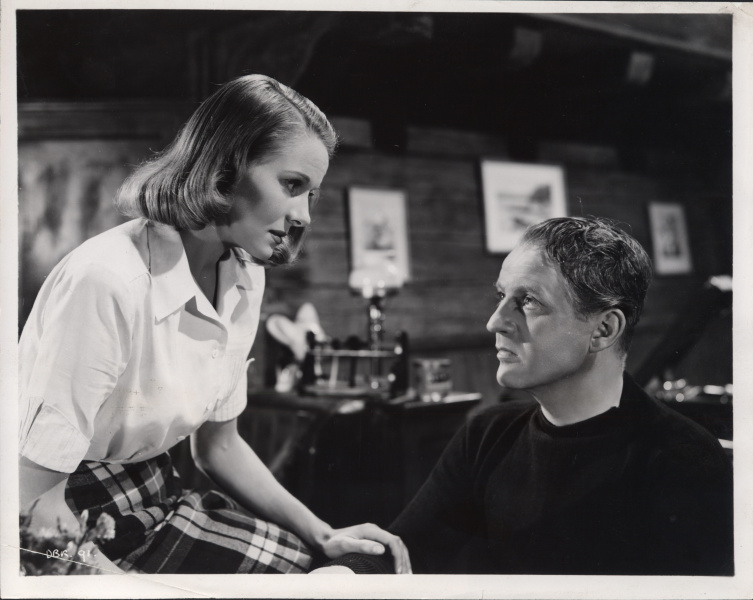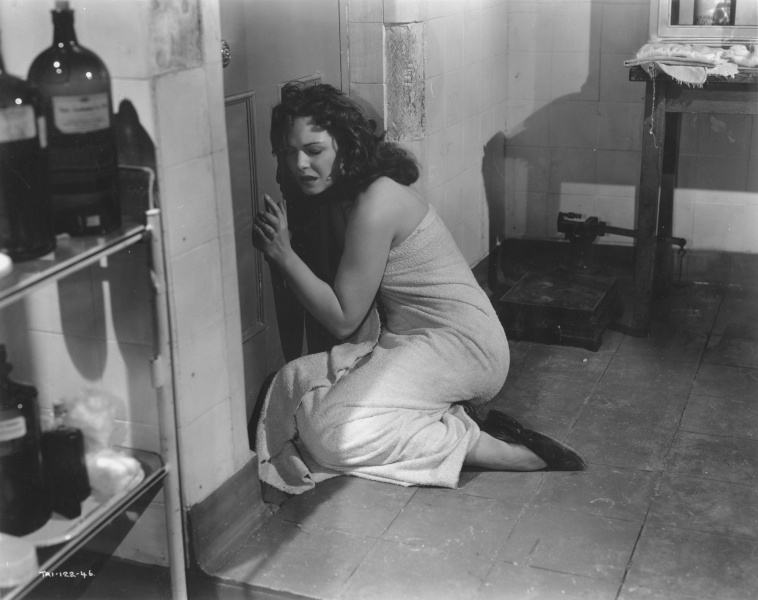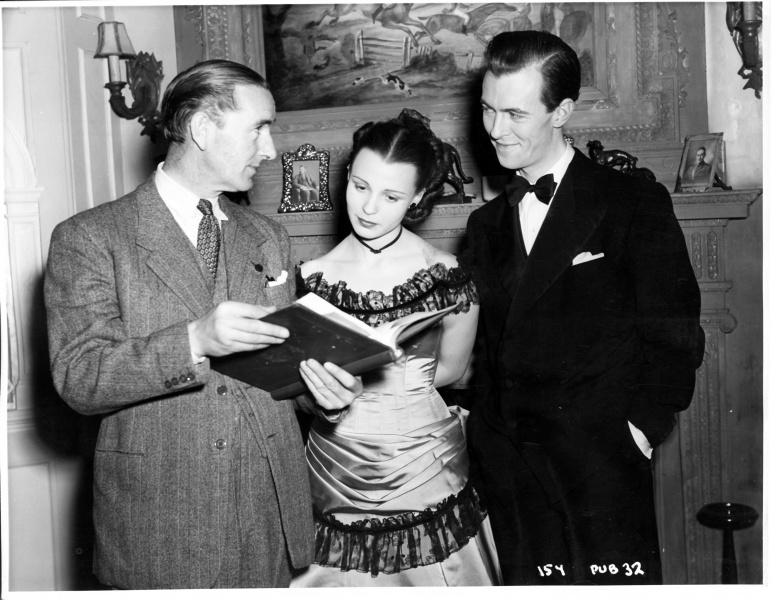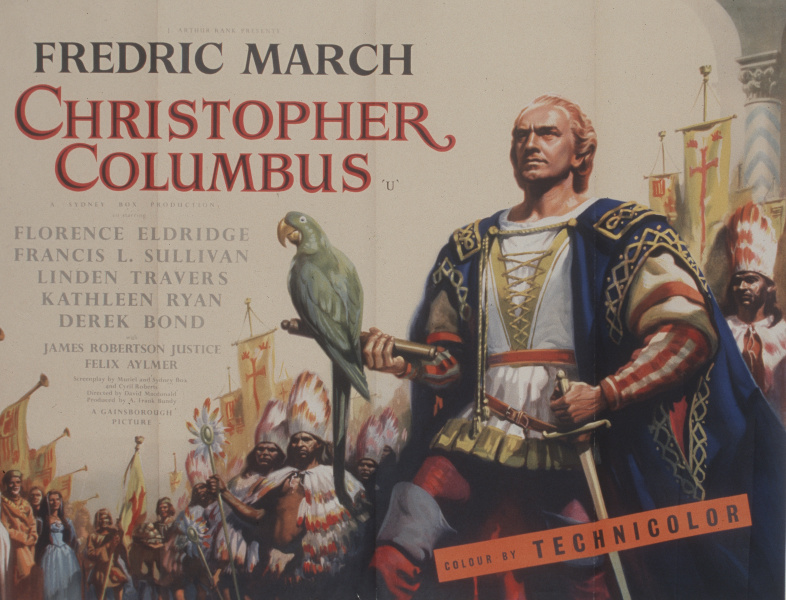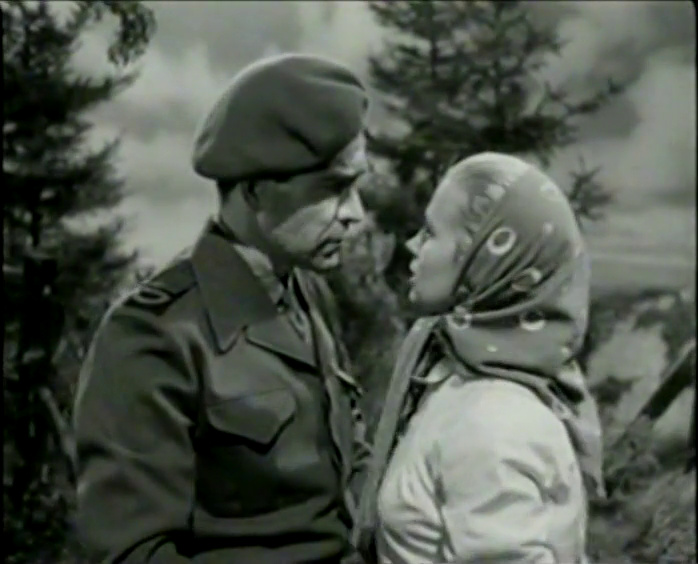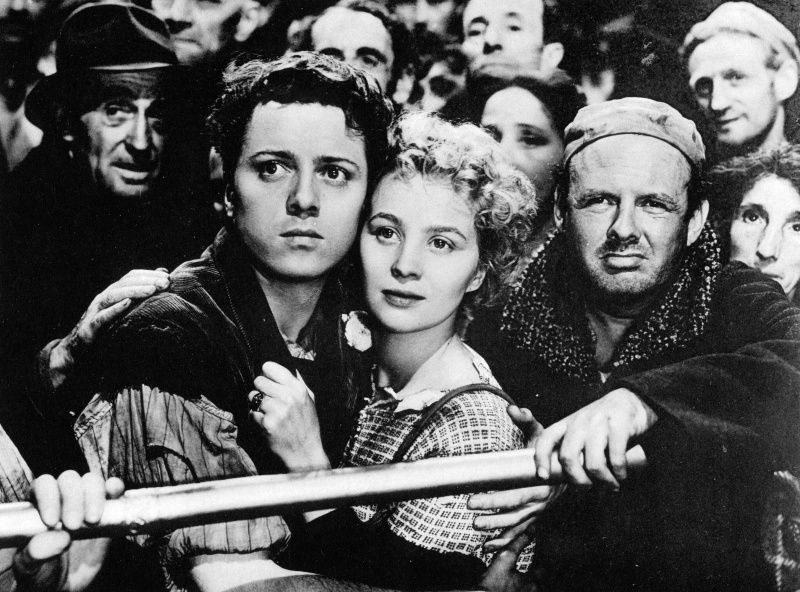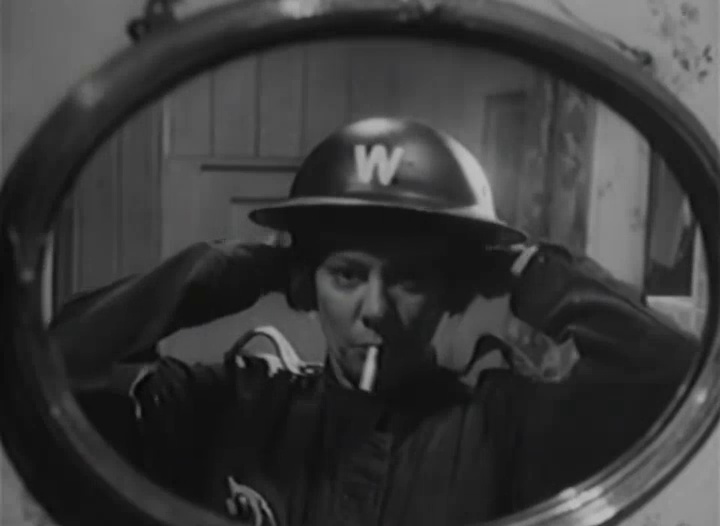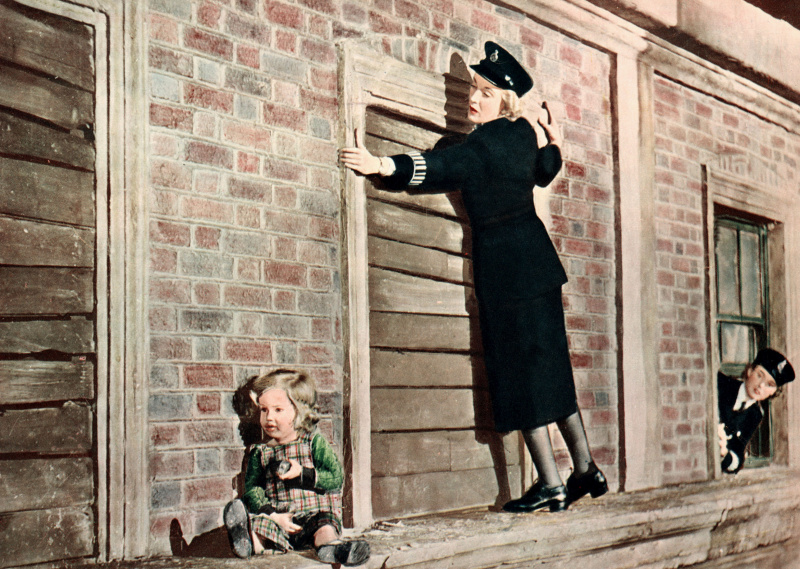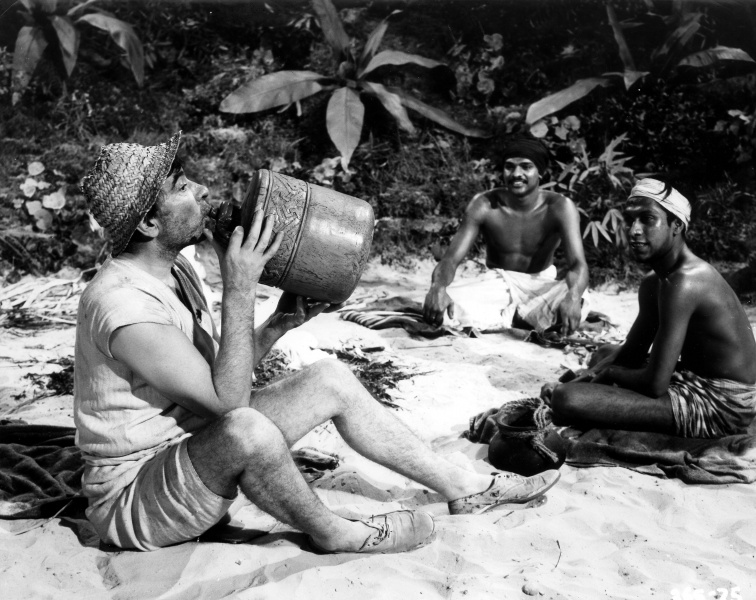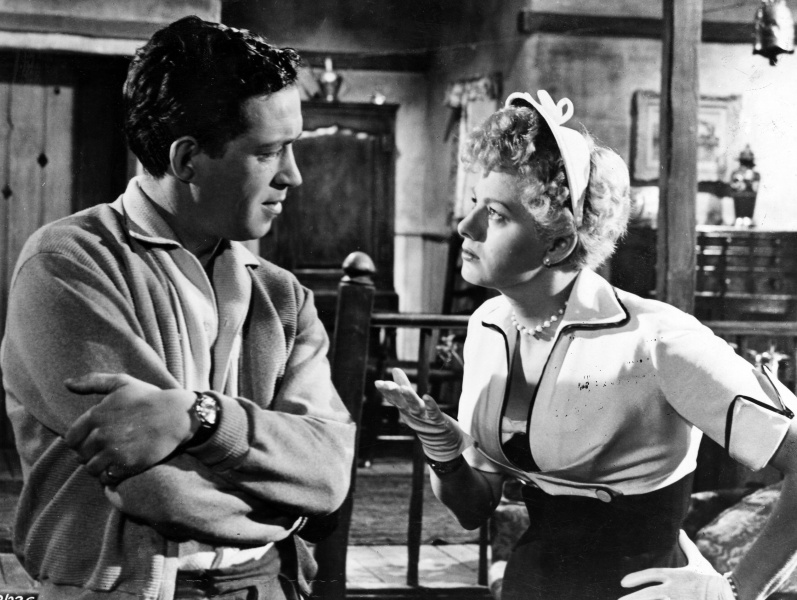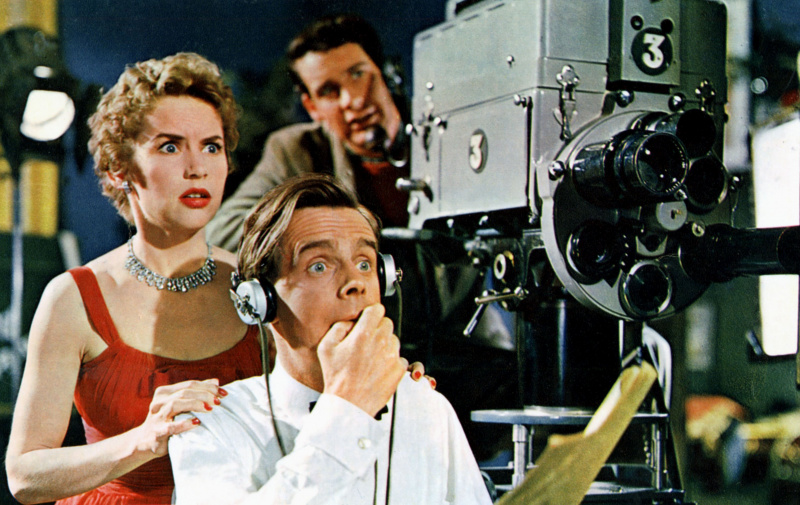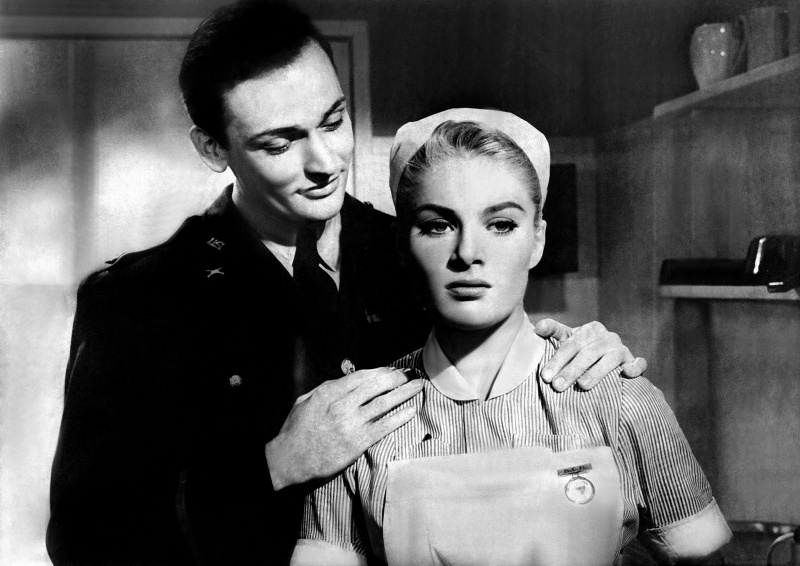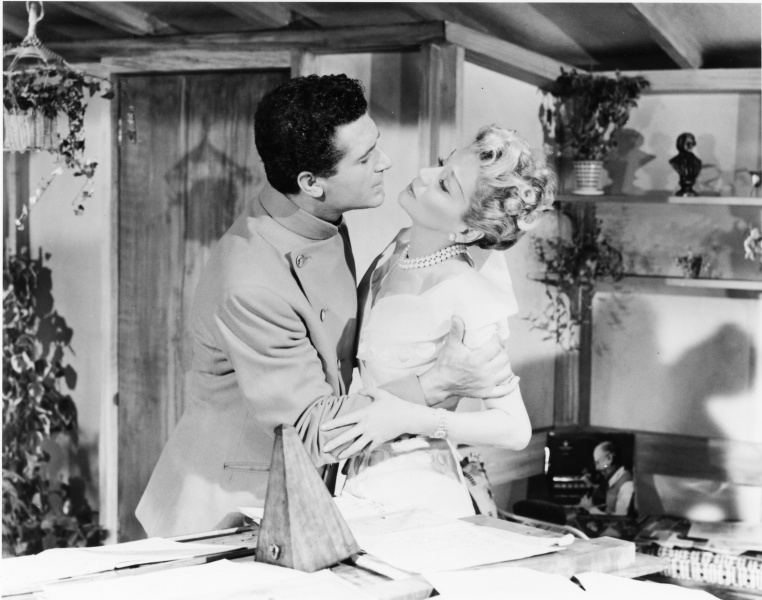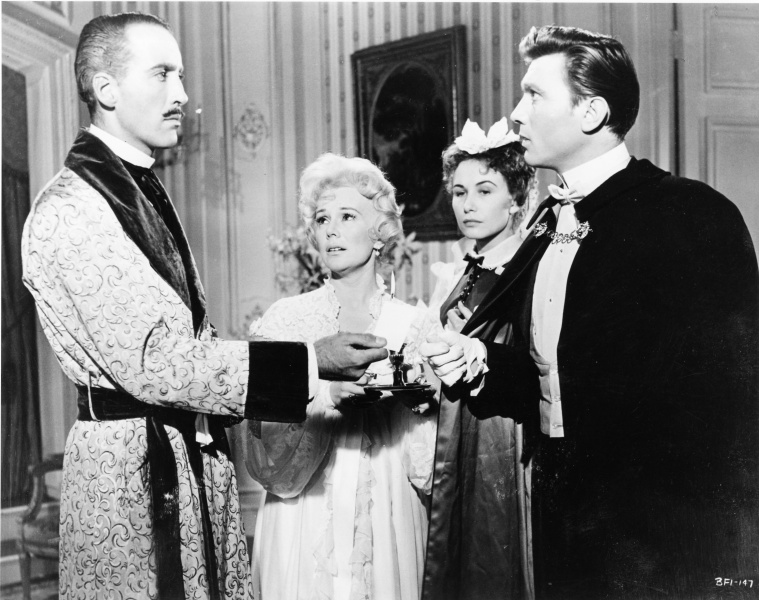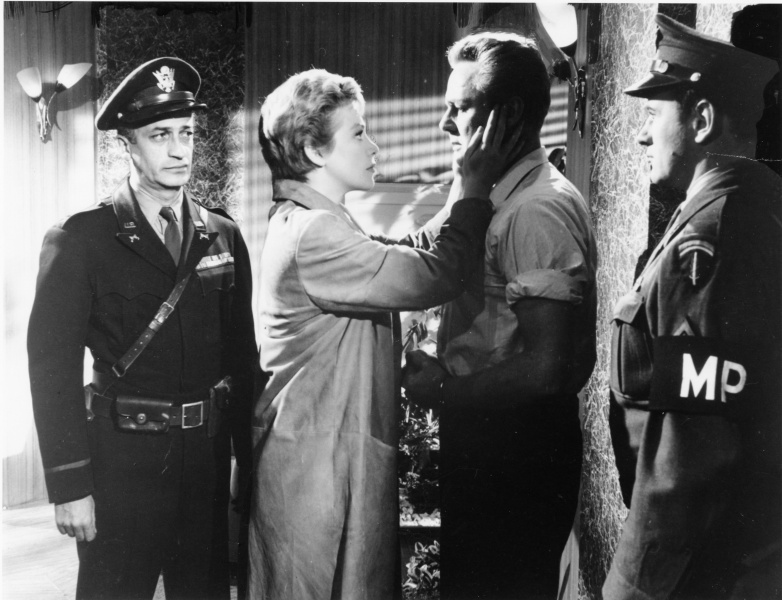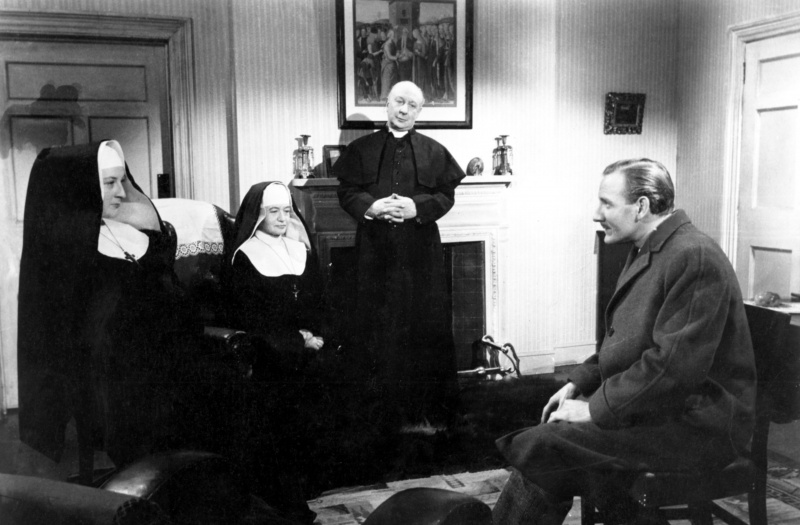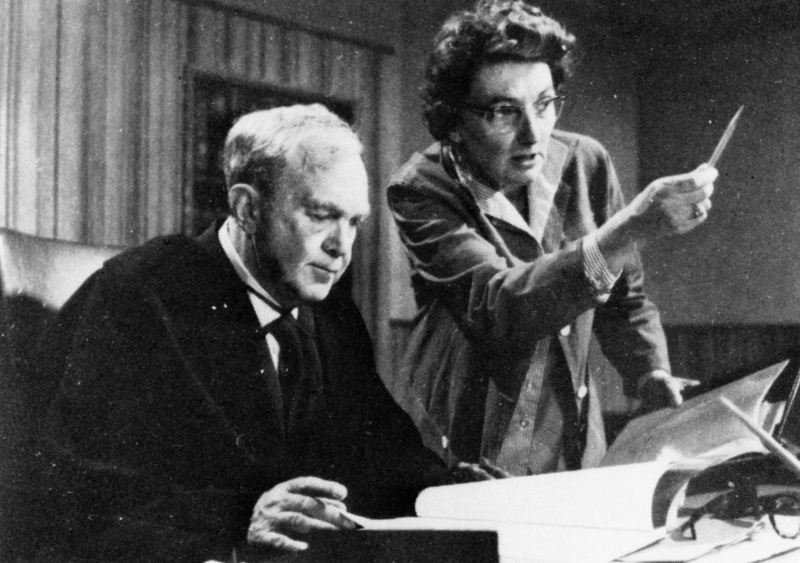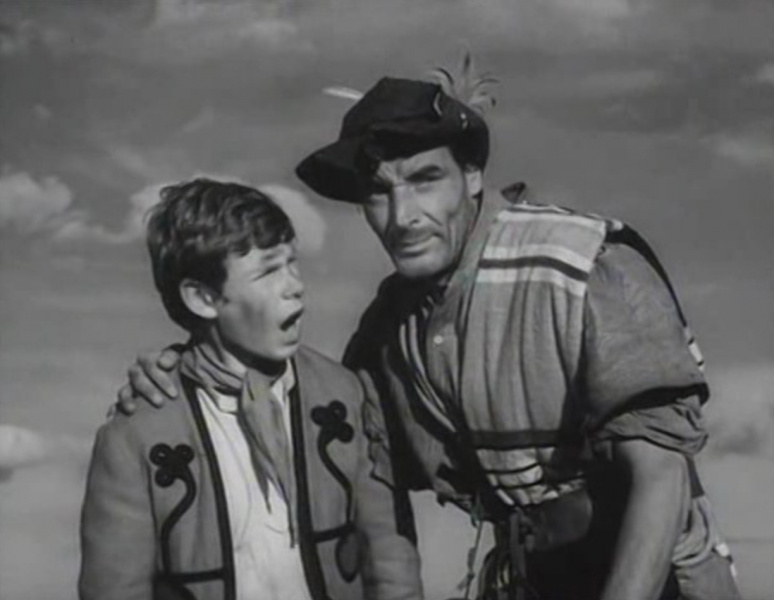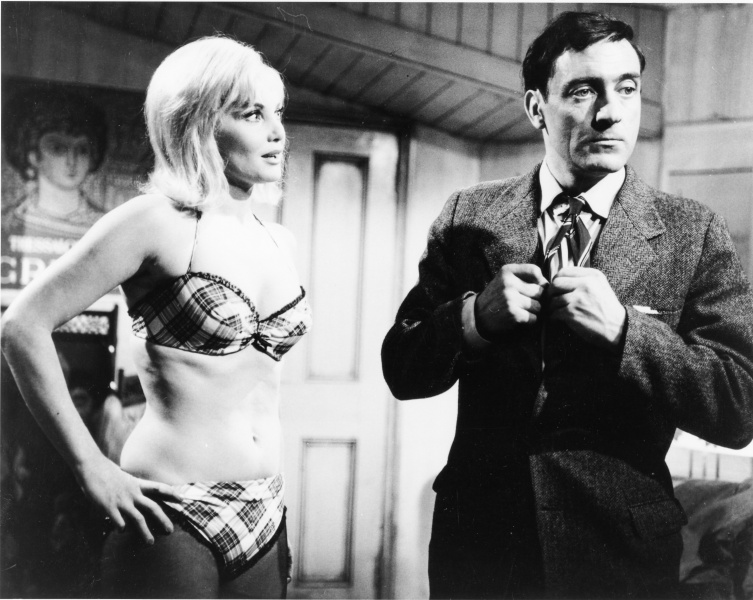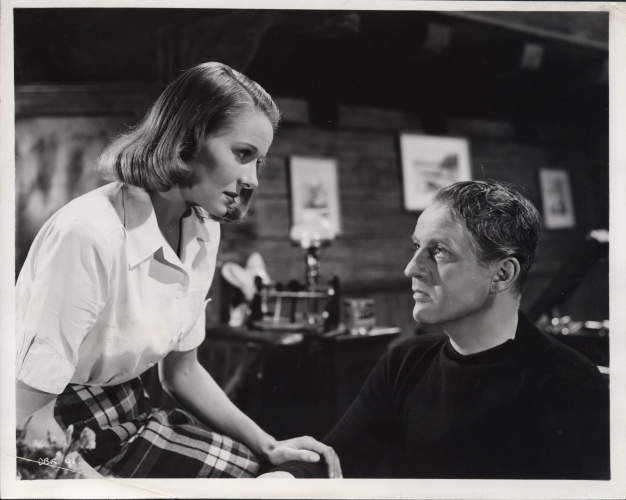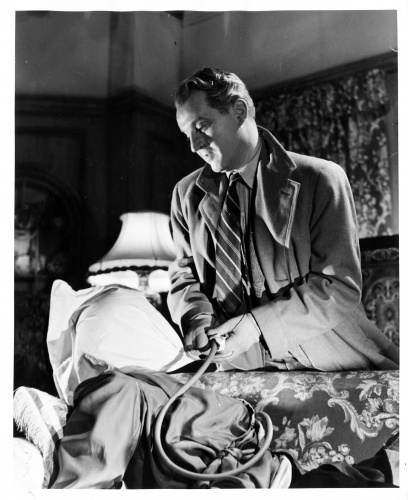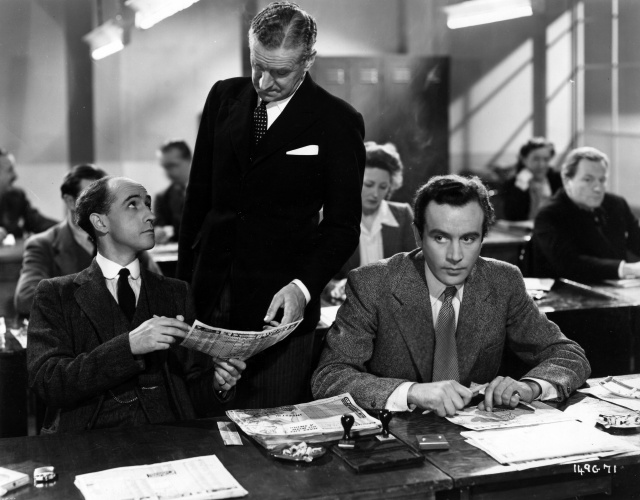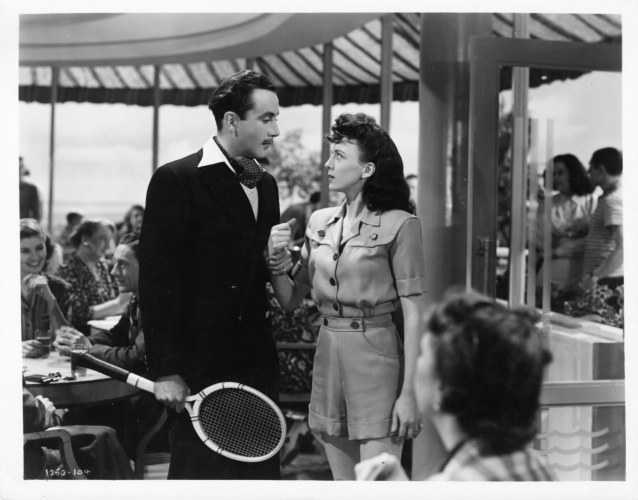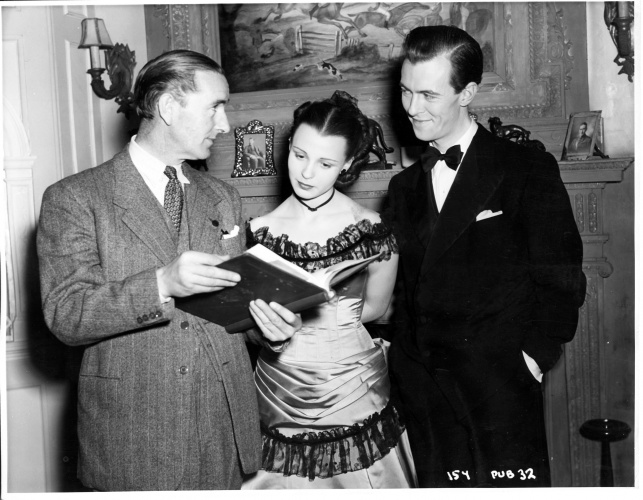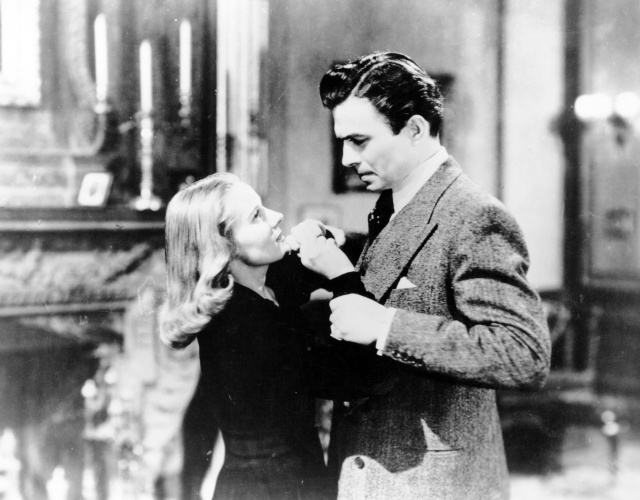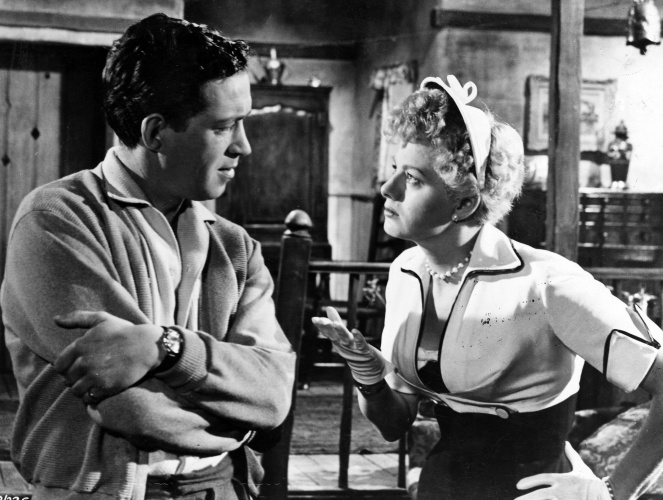The Muriel Box retrospective will offer the 28 feature films written and directed by her at the 66th edition of the San Sebastian Festival.
Box (Surrey, England, 1905- London, 1991) was characterised throughout the years of her work, from 1945 to 1964, as being a writer and director who tackled complex, taboo subjects including prostitution, child abuse, abortion, illegitimate children or adolescent sex. She had an extremely clairvoyant and brave approach given the social and political context in which said films were made. Her contribution in relation to those subjects played a fundamental role in the British cinema of the fifties and first half of the sixties.
As was the case of North America’s Dorothy Arzner – to whom the San Sebastian Festival dedicated a retrospective in 2014 – and Ida Lupino, reviewing her filmography today seems essential in establishing a feminist discourse and vindicating the important role played by women filmmakers in different contexts and cinematographies. Despite enjoying a certain prestige among cinephiles, there are very few studies of her works and barely any mention is made of her in general film histories.
Muriel Box also falls in line with independent cinema despite working with subject matter typical of the classic and popular genres, such as drama, comedy, detective or period films. Her work as a director corresponds to a time of change within British cinema: the days of the Ealing comedies, the work of other independent moviemakers like Michael Powell and Emeric Pressburger and the birth of the critical documentary-making which would lead to Free Cinema.

Born on 22 September 1905 in New Malden (Surrey) as Violette Muriel Baker, she started her film career in continuity. In 1935 she married the writer Sydney Box, and five years later the two created Verity Films, a production company intended to fund short films of a war propaganda slant during World War II. Sydney’s sister, Betty Box – one of the most influential English producers of the fifties – collaborated with them. With Verity, Muriel made the short film, The English Inn (1941).
With her husband, she wrote several plays for amateur companies. After the war, when Sydney became the director of Gainsborough Pictures, Muriel took on the position of head of the Script Department and co-directed The Lost People (1949), a post-war drama started by Bernard Knowles and for which she completed 60% of the footage; the plot unfolds in a German theatre where two British soldiers are guarding several refugees.
In 1951, Sydney created the company London Independent Producers, where Muriel could produce storylines that were not exactly to the taste of the film world or the British society of the moment, almost always with screenplays written by herself and her husband. She worked to a combination of auteur approach and genre cinema, and this turned out to be one of her main traits. Although she enjoyed certain privileges, she had to deal with the male and even female prejudices of the movie industry: a year earlier, the actress Jean Simmons had turned up the pressure to stop her from directing So Long at the Fair (1950), finally helmed by Terence Fisher and Anthony Darnborough. Muriel Box has been defined as a director who was easily put off yet who was also tenaciously ambitious.
She directed 14 feature films between 1949 and 1964 – as well as a short film – outstanding among which are her peculiar romantic comedies focussed on the war of the sexes: To Dorothy a Son (1954), starring Shelley Winters, following the ups and downs of several characters as they try to get their hands on an inheritance; Simon and Laura (1955), with Peter Finch and Kay Kendall in the parts of a couple of real-life actors who become the stars of a BBC show; The Passionate Stranger (1957), with Ralph Richardson as a chauffeur who gets the wrong idea about his boss, Margaret Leighton, after reading the erotic novel penned by her; The Truth About Women (1957), in which the character played by Laurence Harvey relives his colouristic and exotic love stories on different continents, and Rattle of a Simple Man (1964), the director’s last film, about the relationship between a shy football supporter and a prostitute.

She was equally brilliant in drama, with titles including The Beachcomber (1954), the adaptation of W. Somerset Maugham’s classic piece on alcohol, religion, puritanism and epidemics; This Other Eden (1959), on the problems in Ireland, narrating the tensions in a small town where plans are underway to erect the statue of an IRA member, and Too Young to Love (1960), a tale of underage prostitution and abortion set in an American courthouse with Thomas Mitchell in the part of the veteran judge. She also shot curious criminal stories: Street Corner (1953), in semi-documentary style and about the everyday work of a policewoman; Eyewitness (1956), about a woman who, having seen someone murdered in a film theatre, is run over by a bus and later pursued in hospital by criminals, and Subway in the Sky (1959), set in post-war Berlin and starring Van Johnson and Hildegarde Knef.
In 1946, Muriel won the Best Original Screenplay Oscar for The Seventh Veil, a film made by Compton Bennett and written in collaboration with her husband. She was the first woman to win a Best Screenplay Academy Award after Frances Marion, who had taken it twice, in 1930 and 1932. Before starting to direct she participated as a screenwriter and producer on films by Terence Fisher, Compton Bennet and David MacDonald, among other illustrious British helmers of the forties and fifties.
The cycle is complemented by the publication of a book about the director coordinated by Quim Casas and Ana Cristina Iriarte in which different Spanish and British authors have participated as Rachel Cooke, Hanna McGill, Eulàlia Iglesias and Carlos Losilla.
The retrospective is organised jointly with the Filmoteca Española, and has the collaboration of the Lumière Film Festival (Lyon), Filmoteca of the Institut Valencià de Cultura, the Basque Film Archive and San Telmo Museum (San Sebastián.
After its screening in San Sebastian, the retrospective will run during the months of October and November at Filmoteca Española in Madrid, at Lumière Festival in Lyon and at Filmoteca of the Instituto Valencià de Cultura.
The Robinsons, a middle-aged British couple are scheduled to go off on a holiday cruise in the Mediterranean. When their children refuse to accompany them they decide to go to a British seaside holiday instead. They come back home earlier than expected to find their daughter embarked on a "trial marriage" and their son having an affair with a married woman.
After attempting suicide, Francesca Cunningham, a world famed pianist, undergoes psychological treatment by Dr. Larsen. Larsen delves into her subconscious to find out the events and persons who drove her to her present situation. Francesca is forced to confront her feelings for Nicholas, her guardian and musical tutor, a controlling personality.
A young inventor divorces a nagging wife and, to avoid all women, finds employment in a remote all-male department of the War Office. His peace is broken by a U.S. colonel's daughter, Gay, who is shell-shocked and has lost the power of speech. Charmed by her and by the contrast with his former talkative wife, Tony soon falls in love and marries her. However, once wed, Gay suffers a further shock and recovers her speech.
A British officer and Member of Parliament who had been reportedly killed in action during the war unexpectedly returns to his family. His wife is about to marry again and to take his seat in the House of Commons and all must now readjust to the new situation.
Lee Warren returns from a trip abroad to find evidence that Vivien, his wife, has been unfaithful to him, and sets out to find her lover, kill him, and make it look like suicide. But immediately after, he discovers that they had broken up some time before and that she has a new lover, whom he tries to incriminate in order to shift the suspicions of the police from him.
The Huggett family goes to a holiday camp where they encounter many different people: a pregnant young girl and her boyfriend, a group of gamblers, a murderer seeking his next victim, a husband-seeking spinster and a middle-aged matron on her first holiday after years of taking care of her invalid mother.
Mary Lawson is a Scottish orphan who comes to Isle of Skye to work as serving girl for the Macraes. Her arrival reinflames the long standing conflict between two clans, the Macraes and the McFarishes, and causes an internal power-struggle between two brothers in the Macrae clan.
19th-century smuggler Carlyon is the guardian of seaman Andrews. Andrews, who feels persecuted by his stern disciplinarian guardian, betrays the crew of Carlyon’s smuggling ship. Some of the smugglers are caught, but Carlyon escapes and then begins his search for Andrews. Andrews seeks refuge in the cottage of a girl named Elizabeth, who urges him to testify against the smugglers in court.
The film is divided into four episodes that deal with the effect of winning a fortune in football pools on four different sets of people. A happy family is turned into an unhappy one until it is discovered the coupon apparently did not get posted. A mild-mannered clerk worries about how to tell his overbearing boss he is quitting. A double-bass player misses the orchestra he has left and some people are turned into criminals.
Eddie, who works as a hangman under an assumed name, conceals this other job when he gets married and sets up home with his girl on a barge in the river Thames where he directs a barge business. Tragedy strikes when his assistant, Olaf, tries to seduce his wife and after a fight between the two men, the hangman is presumed drowned. The woman commits suicide and Olaf is sentenced to hang.
Miss Thorpe, the chairman of the Juvenile court, gives advice to troubled teenager Lyla Lawrence. Miss Thorpe tells Lyla that her life has a similar beginning to that of Gwen Rawlings. Gwen was a teenage girl who continually fell into the wrong crowd. Her father also beat her, so she left home and fell into trouble. She was sentenced to a reform school for three years.
The private secretary to Lord Brasted learns from a friend that his employer, an administrator of an International Relief organisation, has been converting funds to his private use. After many vicissitudes the secretary manages to expose his employer.
Using a letter of introduction from Queen Isabella's former confessor, Christopher Columbus gains access to the Spanish court where he tries to convince authorities to support him in his proposed voyage to reach to Far East by sailing west. He overcomes intrigue at court and convinces the Queen that his plan is practical.
A German professor sees a portrait in an art gallery which looks exactly like his daughter, who is assumed to have died in the war. The girl, who is an amnesiac, has been living in Europe under the protection of a wanted Nazi war criminal. A British army major in Occupied Germany tries to cut through red tape and an espionage plot to rescue the girl.
After World War II, various displaced people coming from concentration camps and forced labour camps, await transportation back to their homelands in a German theatre guarded by British soldiers. However, after years of union against fascism, fights erupt among the displaced people: Serb against Croat, Pole against Russian, resistance fighter against collaborator and everyone against the Jews. Two people, Jan and Lily, fall in love and decide to get married.
The Lord family – a husband and wife with several children – owns a grocery shop close to the Festival Hall which is under construction. Lillian Lord runs the shop, while Henry is a train driver who is just about to retire. One day Mr. Filch, a senior civil servant announces that, due to an error by one of the planners, the Lords' shop and house will have to be demolished to build a road, assuring them that they will be financially compensated and will be moved to a new house..
The daily work and routine of women police built around three story lines. The first involves an 18-year-old girl who is picked up for shoplifting. The second story tells of a female deserter who becomes involved in bigamy. The third is about a baby who is mistreated by its father and step-mother, but is reunited, through police work, with its mother.
Mr. Gray is the new British Resident of the Welcome Islands. The only other Europeans are the brother-sister missionary team of Martha and Owen Jones, and the Honourable Ted - a hard-drinking, social outcast whose English family pays him to stay away. Martha and Ted are forced to collaborate when cholera threatens the islands and they must do their best to stop its spread.
In order to earn an inheritance of 2 million dollars from her uncle, an American woman travels to Britain to prevent her ex-husband having any more children. She will receive the money if her husband does not have any male heirs by a certain date. But his new wife is pregnant.
In the 1950's, a producer has the idea of basing a BBC family series on a real-life happily married actor couple. He chooses the Fosters, who need the money and so do the show, although in reality their marriage is far from happy.
Lucy has a fight with her husband and runs out of the house. She goes to the cinema where she sees a couple of crooks who are robbing the cinema's safe and kill the manager. In her haste to escape the thieves, she is knocked down by a passing bus, and is taken to the local hospital. The two crooks follow her, and wait for a chance to finish her off, and thus eliminate the only person who can tie them to the murder.
A woman novelist writes of a lady's affair with an Italian chauffeur, and her own Italian chauffeur reads the manuscript and jumps to conclusions.
Sir Humphrey Tavistock recalls his relationship with the women he loved to his son-in-law, unable to understand his wife and women in general, to help him to appreciate them as well.
A military doctor in Berlin is falsely accused of illegal dealing in drugs. Determined to prove his innocence, he escapes from the MPs. He takes shelter in the flat that his wife has sublet to cabaret singer Lilli Hoffman, whom he persuades to help him prove his innocence.
A teenage girl is accused by a neighbour of receiving adult men at home. She is brought to a juvenile court before a kind and understanding judge. She recounts her story to him. Due to parental neglect and lack of guidance she gets in with the wrong crowd and, after an affair with a sailor, she has an abortion and is eventually arrested for teenage prostitution.
During the Napoleonic Wars child refugees become involved with a Pyrenean escape route and the problem of whether to save a wounded enemy who is a danger to their own safety.
Percy Winthram comes to London from Manchester for the Cup Final. After the game he and his companions go to a Soho strip club. Percy is innocent and shy. One of his friends bets he won't take a blonde home and sleep with her. Percy accepts. Cyrenne, the blonde, who has overheard the bet, accepts too. Cyrenne tells him of her aristocratic background. Impressed, he boasts of his conquests and their mutual trust and liking grows.


